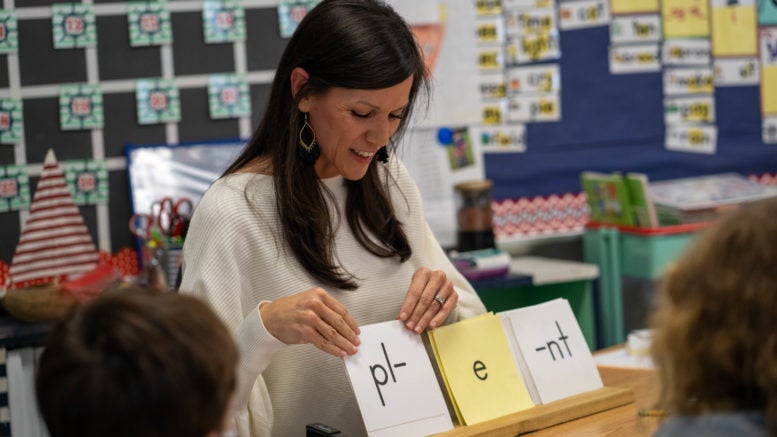Shelby County Schools named Alabama Science of Reading Spotlight district
Published 9:55 am Thursday, June 16, 2022

- The Science of Reading Spotlight recognizes districts and schools that are implementing steps to improve reading proficiency in kindergarten through third-grade. (Contributed)
|
Getting your Trinity Audio player ready...
|
FROM STAFF REPORTS
The Shelby County School District has been named an Alabama Science of Reading Spotlight school district for demonstrating a strong commitment to foundational literacy for elementary students in grades K-3.
Shelby County Schools and Cullman City Schools were the only two districts recognized by the Alabama State Department of Education with this distinction. The ALSDE also recognized 12 individual schools from across the state.
“We are proud of our teachers and administrators for their dedication and hard work in learning more about how students acquire the skills necessary for reading and writing,” said Deputy Superintendent, Dr. Lynn Carroll, who oversees curriculum and instruction for Shelby County Schools. “We know that teachers, not programs, make the difference in our classrooms.”
The Science of Reading Spotlight recognizes districts and schools that are implementing steps to improve reading proficiency in kindergarten through third grade and ensure students read at or above grade level by the end of third grade, as outlined by the Alabama Literacy Act.
The Science of Reading Spotlight (SoRS) schools were also recognized for prioritizing that K-3 faculty participated in Science of Reading training, such as Language Essentials for Teachers of Reading and Spelling (LETRS), and for showing student progress in reading achievement as evidenced by third-grade reading outcome data between 2019 and 2022.
Shelby County Schools was specifically spotlighted for having district leaders who have created structures that prioritize professional learning in the science of reading and foster the principal-coach partnership.
Alabama Reading Initiative staff visited schools across the state who had made significant growth in reading achievement amid the country’s most challenging years for public education. Once visits were complete, the ARI teams met to identify common structures and practices that attributed to these gains.
According to the ALSDE, leadership was critical at each of Alabama’s SoRS schools. The major factors enacted by leadership were positive school culture and climate, providing structures that support the implementation of the Science of Reading, sustaining evidence-based changes in instructional practices, and setting high expectations for all.
Because of the strong leadership displayed by the district and school leaders, along with strong parental engagement, the local reading specialists working in SoRS schools were able to spend the majority of their time coaching and providing professional learning groups that helped to deepen teachers’ knowledge in the Science of Reading.









